The present public upsurge in Hong Kong, administratively known as the Hong Kong Special Administered Region (HKSAR) of Peoples Republic of China (PRC), is now nearly three-month old. The latest trigger for the present unrest has been the HKSAR administration`s attempt to prosecute people of its territory under a law which entails extradition to PRC. There seems be no let up.
As per official statements from Beijing, the Chinese Communist Party`s (CCP) patience is apparently wearing thin. A substantial Red Army`s armed police militia is stationed at Hong Kong`s periphery in a significant show of strength. Hong Kong`s administrator of China`s choice, Carrie Lam, gradually seems to be losing her authority as young protesters are spreading themselves all over the city and resorting to widely dispersed protests adopting unique methods. Of late, violent police action towards riot control has also occurred. The situation as it is evolving does not seem show any sign of a rapprochement between the protesters and the China-backed HKSAR administration. The future scenario is quite ominous. The point to ponder is whether the stand-off between the HKSAR administration and the protesters was inevitable, and if so, what would be the consequences for China`s external relations, in particular with its South-East and East Asian neighbours and on Taiwan.
First of all, and on the face of it, the `One China Two Systems` (OCTS) experimentation, accepted and committed to by Beijing while taking control from Britain on 1st July, 1997, is under serious threat. It is to be seen whether the erosion of this systemic dualism in governance by the PRC, feared by the protesters having huge public support, is destined to collapse. However, the ruling CCP leadership under Xi Jinping cannot allow the democratic system of HKSAR, albeit under some control in its applications, to be converted into a system wherein the chief administrator can govern within a truly democratic polity and without having to obtain concurrence from the Beijing’s political leadership in matters of governance, selection of key political and administrative functionaries and civil rights of the people of the territory. The fact of the matter is that despite the promulgation of HKSAR`s Basic Law (its de-facto Constitution) on 1st July 1997 under the auspices of China`s National People’s Congress (NPC, PRC`s parliament), this unique city is yet to achieve universal suffrage and an executive and a legislative assembly with its full complement of members directly elected.
The question therefore arises as to why then China had allowed the HKSAR experiment of OCTS at all. In the late 1980s, when the CCP leadership under Deng Xiaoping was trying to consolidate his political supremacy, and control internal dissention, China had an acute need for economic growth, territorial consolidation, encouragement of market forces, foreign investment, entrusting Hong Kong with the special status of SAR, when the OCTS deemed advantageous. In economic terms, advantages of such an experiment were enormous and enabled the PRC to display an accommodating and benign image to the world. The positive outcome of this experiment can be gauged from the fact that HKSAR with a population of nearly seven million has presently the 35th largest economy in the world with a GDP of nearly US $ 365 billion, a per capita GDP of over US $ 50000 (mainland China`s is approximately US $ 10000), a route for capital inflows to China, etc. Notwithstanding the above-mentioned factors, the Xi leadership may not be willing to compromise on its near-total political control on the HKSAR executive and domination of its legislative assembly – with only 12 members of the total of 60 directly elected by the people, which in any case has limited powers of enacting laws and that too subject to ratification by the NPC.
The international community may have limited influence to soften up Beijing`s approach on the present HKSAR unrest. In a realistic sense, it is only the policies and approach of USA, Japan, South-East Asian and East Asian countries, which could have had some consequence on PRC. However, in the backdrop of the South China Sea dispute, disquiet among ASEAN countries, US’ contentions over trade and tariff, and Japan’s trade and strategic issues, it is unlikely that PRC would countenance any moderation of its posture vis-à-vis any further autonomy in HKSAR beyond what is allowed till now.
It is also possible that the present CCP leadership would not like a Tiananmen Square situation to develop in HKSAR. An attempt may therefore be made to split the Hong Kong movement, arrest some of the activists but not extradite them to mainland China, and imprison them for some time in HKSAR. Such moves will not douse the discontent in HKSAR, and the movement would fester. In such an eventuality, the impact on PRC`s trade and commerce with its major trade partners, except Russia, may be affected. Furthermore, PRC`s image in international institutions like Asian Development Bank, World Health Organisation, and United Nations World Trade Organisation, where HKSAR is an associate member apart from PRC, would suffer. There would also be an impact on the Hong Kong dollar which is linked to the US Dollar under the Linked Exchange Rate System. It depends to what extent Xi and the present CCP leadership would consider it appropriate to face such negative consequences on PRC and its economic and its international stature.
In the ultimate, the reasons for which Deng and the then CCP leadership entered into a modus vivendi with Margaret Thacher`s British government in December 1984 for an eventual Hong Kong Handover Agreement operative from 1st July, 1997, still remain valid. The 50-year period (1997 to 2047) of the transitional arrangement for HKSAR involving the OCTS have served PRC well though at a cost of curtailment of democratic rights of the people of the territory in the Western egalitarian sense. However, in the perception of the present PRC CCP leadership, dependence of their country on HKSAR`s economy and trade systems, though substantial, is unlikely to be compromised for any development which undermines its political hold within its vast territory. The international community, in particular USA and the East and South-East Asian countries including Japan may not be oblivious to this reality.
(The author is a retired IDAS officer who has served in senior appointments of Government of India and some Indian State Governments)
(The paper is the author’s individual scholastic articulation. The author certifies that the article/paper is original in content, unpublished and it has not been submitted for publication/web upload elsewhere, and that the facts and figures quoted are duly referenced, as needed, and are believed to be correct). (The paper does not necessarily represent the organisational stance... More >>
Image Source: https://cdn.cnn.com/cnnnext/dam/assets/190701122858-10-hong-kong-protest-0701-super-169.jpg

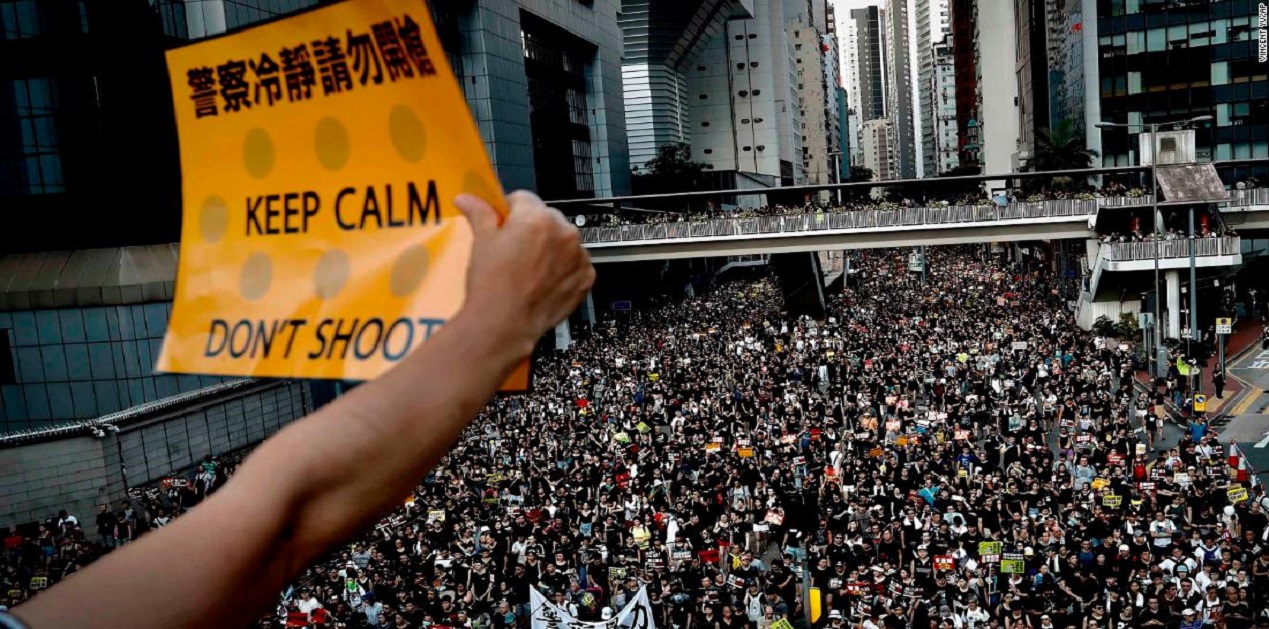
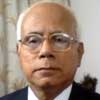
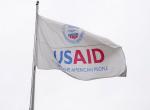


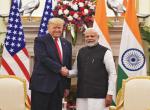

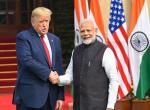

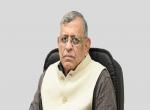
Post new comment